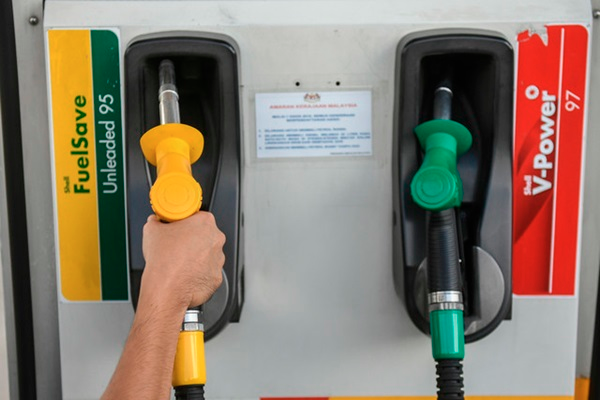PETALING JAYA: The government should consider removing fuel subsidies, raise fuel prices and introduce fuel taxes, which can alleviate Malaysia’s budget deficit and increase tax revenue collection.
Based on the recent auditor-general’s report on the federal government’s 2022 financial statement, the government spent a total of RM62.11 billion in subsidies last year, with RM45.18 billion on petroleum products subsidy.
Touching on the fuel subsidy expenditure, Datametrics Research and Information Centre managing director Pankajkumar Bipinchandra pointed out that Malaysia ranks as one of countries in the world with the lowest fuel prices.
Currently, he said, RON95 is priced at RM2.05, which is among the lowest even in the whole Asean region. Pankajkumar cited neighbouring countries such as Indonesia, Thailand, Vietnam, Cambodia and Laos with average fuel prices of more that RM5 per litre – pointing out that it is two and a half times more than domestic prices.
He questioned the reasons behind sparing Malaysia from higher fuel prices as well as taxes, when other countries and its citizens were able to manage.
“What makes Malaysia so special that we are willing to fix RON95 (including) all the basic fuel that’s been used by everyone else or even diesel subsidy for that matter, which is actually another huge amount, which is about RM20 billion a year, part of the RM45 billion that was spent last year,” he said during the MARC360: Pre-Budget 2024 Views Series 2 – Malaysia’s Long Story of Fiscal Consolidation webinar yesterday.
In order to tackle budget deficit, he suggested for the government to remove fuel subsidy and introduce fuel tax.
“Why is Malaysia not able to remove the subsidy or even tax them for that matter? In fact, if you look at a lot of countries, fuel is sold with a tax element ... there’s a sales tax, petroleum tax, value added tax elements. The right way to address this, is to come up with a strategy to bring prices not only back to market price, but to derive tax revenue out of it, let’s say, over a period of three to five years.
“Perhaps (the government could) increase petrol prices every quarter by 20 cents per litre to reach market price ... in two years time. Thereafter begin to impose tax on it, start with 25 cents, 50 cents or even RM1 for that matter,” said Pankajkumar.
He reckoned that if petrol was taxed at RM1 per litre, petrol prices will be sold at about RM4.50 per litre. With that, the government will be able to generate about RM25 billion in revenue. On top of that amount, it will also save RM45 billion in fuel subsidy.
Pankajkumar reasoned that the tax revenue collected would be more than enough to provide a form of cash assistance directly to the lower income group such as the B40, even to “the bottom 50% to 60% of society”.
He does not fully agree with the government’s take on targeted subsidies, and instead suggested that a better approach would be focusing on raising fuel prices, which could lead to more revenue to help the lower income group.









